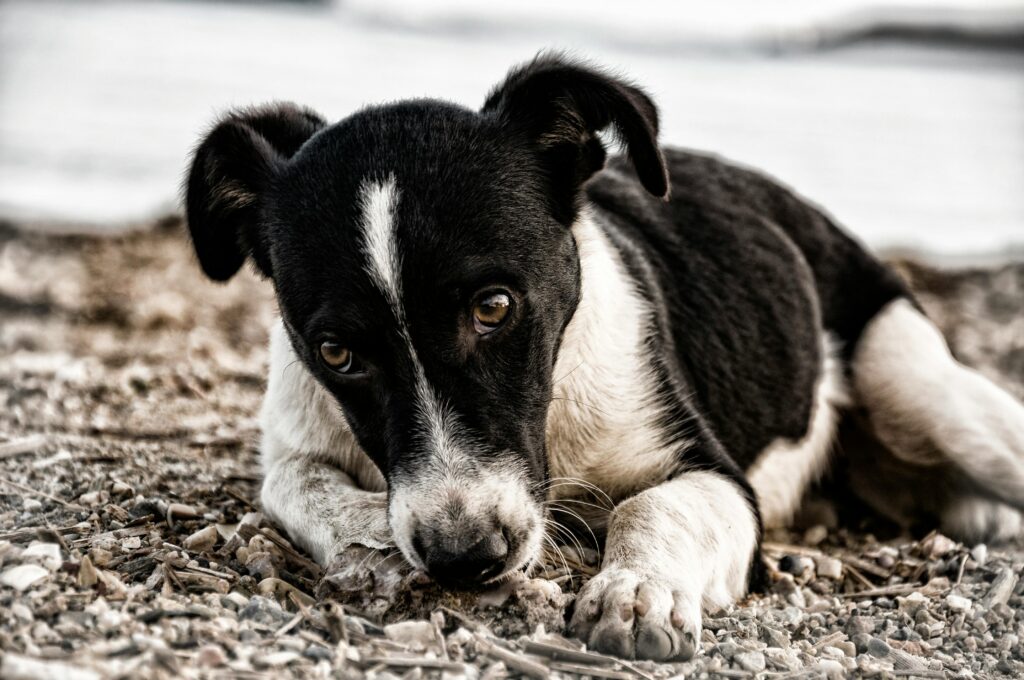
Bringing a puppy into your home is filled with cuddles, playtime, and unconditional love. But as life goes on and daily routines return to normal, many new pet parents start to wonder—Does My Puppy Get Lonely? The short answer is yes. Puppies are social animals, and just like humans, they crave companionship, affection, and a sense of security. When left alone for long periods, they can feel anxious, scared, and even depressed.
Let’s explore how to tell if your puppy is feeling lonely, what signs point to separation anxiety, and what you can do to make them feel loved even when you’re not around 🐾❤️
Why Puppies Get Lonely
Puppies are naturally wired to be part of a pack. In the wild or with their littermates, they’re rarely alone. When you adopt a puppy, you become their new pack leader. So when you leave, even for a short time, it can cause distress—especially during the early weeks.
This emotional dependence is part of healthy development, but if not managed properly, it can evolve into separation anxiety. Asking Does My Puppy Get Lonely is the first step to understanding and preventing this emotional challenge.
Common Signs Your Puppy May Be Lonely 💭🐶
It’s not always easy to know what your puppy is feeling, but there are clear signs to watch out for:
- Destructive Behavior: Chewing shoes, furniture, or digging at carpets when you’re away could be their way of coping with loneliness.
- Excessive Barking or Whining: If your puppy is very vocal the moment you leave or throughout the day, it might be their cry for attention or companionship.
- Pacing or Restlessness: Constant pacing, especially near doors or windows, shows they are anxiously waiting for you.
- Potty Accidents Indoors: Regression in house training can be a sign of emotional distress or anxiety.
- Lack of Interest in Toys or Food: If your pup loses excitement for things they usually enjoy, it may be emotional, not physical.
If you’ve been asking yourself, Does My Puppy Get Lonely, and you notice these behaviors, you’re not alone—many dog owners face this challenge during the early puppy stages.
What Is Separation Anxiety?
Separation anxiety is an intense emotional response to being left alone. It’s more than just a sad face when you grab your keys. Puppies with separation anxiety may go into full panic mode, barking, howling, destroying household items, or even harming themselves. It’s essential to differentiate mild loneliness from serious anxiety so you can intervene early.
How to Help Your Lonely Puppy 🐾💕
Fortunately, there are many ways to support your puppy’s emotional health and reduce feelings of loneliness:
1. Create a Safe Space
Designate a cozy area in your home where your puppy feels secure. A crate with a soft bed, safe chew toys, and a worn T-shirt with your scent can help your pup feel less alone.
2. Practice Short Departures
Start leaving your puppy alone for short periods—just a few minutes—and gradually increase the time. Always return calmly to avoid making arrivals and departures overly emotional.
3. Leave Comforting Sounds
Leave a radio or calming music playing in the background. Some puppies feel less alone when there’s ambient sound, especially voices.
4. Interactive Toys & Puzzles
Toys that dispense treats or challenge your puppy mentally can keep them occupied and distracted when you’re away. Puzzle feeders and chew toys are great options.
5. Stick to a Routine
Puppies thrive on routine. Keeping a consistent schedule for meals, potty breaks, and playtime can help reduce anxiety and build trust.
6. Consider a Dog Walker or Puppy Daycare
If you’re away for long hours, a mid-day visit from a dog walker or time at a puppy daycare can break up the day and provide social interaction.
7. Use Positive Reinforcement
Reward calm behavior when you leave or return home. This helps your puppy associate your departure with something positive, not stressful.
When to Seek Professional Help 👩⚕️🐶
If your puppy’s anxiety worsens despite your efforts, or if their behavior is putting them at risk (e.g., self-harm, refusal to eat), it’s time to consult a professional. A vet or certified dog trainer can help develop a custom plan or recommend safe behavioral therapies.
Emotional Health Matters
Asking Does My Puppy Get Lonely isn’t just a passing thought—it’s a sign that you care deeply about your pup’s well-being. Just like physical health, emotional health plays a vital role in your puppy’s development and behavior. The more effort you put into building their sense of security now, the more confident and well-adjusted they’ll be as adult dogs 🐕💖
Final Woof 🐾
Loneliness and separation anxiety are common in puppies, but they’re also very manageable with the right approach. By recognizing the signs early, setting routines, and providing mental stimulation, you can help your furry friend feel secure—even when you’re not by their side.
Remember, every puppy is different. What works for one might need tweaking for another, but with patience and love, your puppy will learn that being alone doesn’t mean being forgotten.Petsdogpuppy
